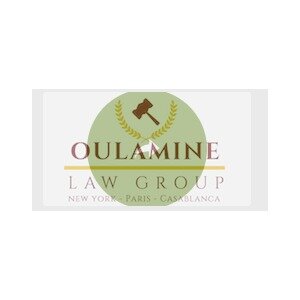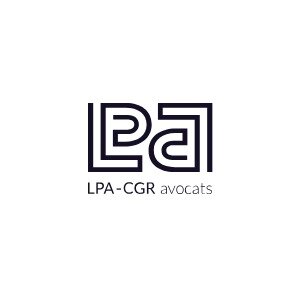Best Sanctions & Export Controls Lawyers in Casablanca
Share your needs with us, get contacted by law firms.
Free. Takes 2 min.
List of the best lawyers in Casablanca, Morocco
About Sanctions & Export Controls Law in Casablanca, Morocco
Sanctions and export controls are critical aspects of international trade law, aimed at regulating the movement of goods, services, technology, and finances across borders. In Casablanca, as Morocco's leading commercial hub, compliance with these laws is particularly significant. Sanctions are legal restrictions imposed on specific countries, individuals, or entities, often for diplomatic, security, or policy reasons. Export controls, meanwhile, limit or monitor the cross-border transfer of certain items, especially those with strategic, military, or dual-use purposes. The objective in Morocco is to balance economic growth, international obligations, and national security.
Why You May Need a Lawyer
Lawyers specializing in sanctions and export controls can help individuals and organizations navigate the complex regulatory landscape. Common situations where legal assistance is crucial include:
- Planning to export goods or technologies from Casablanca to restricted countries or entities
- Receiving inquiries or facing investigations from Moroccan or international authorities
- Unsure whether your business transactions may breach embargoes or sanctions regimes
- Engaging in joint ventures with foreign partners, especially in sensitive sectors like defense, aerospace, or technology
- Responding to denied party lists or negative screening results
- Seeking licenses or permits for exporting controlled items
- Needing advice on compliance programs to avoid penalties
- Clarifying the implications of recent sanctions announcements or policy changes
Local Laws Overview
Moroccan laws governing sanctions and export controls are shaped by national priorities as well as international commitments, including United Nations Security Council resolutions and multilateral treaties. The key relevant aspects in Casablanca include:
- Morocco aligns with UN-imposed sanctions and often harmonizes its measures with those of major trade partners
- Export of strategic goods, dual-use items, weapons, and related technologies is controlled by specific licensing requirements
- Customs authorities in Casablanca meticulously inspect exports and imports, with severe consequences for violations
- Financial transactions with certain individuals, organizations, or jurisdictions can be restricted or prohibited
- Failure to comply with sanctions or export controls can result in high fines, loss of export privileges, and criminal prosecution
- Special attention is paid to anti-terrorism financing laws and anti-money laundering regulations
- The regulatory landscape can evolve rapidly, especially in response to global developments
Frequently Asked Questions
What are economic sanctions in Casablanca, Morocco?
Economic sanctions are legal measures that restrict commercial, financial, or trade activities with targeted countries, entities, or individuals. These are implemented to uphold international peace, security, or policy objectives.
Who regulates export controls in Casablanca?
In Morocco, export controls are primarily managed by the Ministry of Commerce, supported by customs authorities, the Ministry of the Interior, and financial regulatory bodies.
Which goods are subject to export controls?
Controlled goods generally include military items, dual-use technologies, certain chemicals, advanced electronics, encryption devices, and items listed under international regimes such as the Wassenaar Arrangement or CITES.
Do I need a license to export technology from Morocco?
If you are exporting items that are subject to control, such as advanced software, certain machinery, or defense-related items, you will likely need to obtain an export license from the appropriate Moroccan authority.
What are the penalties for violating sanctions or export controls?
Penalties can include significant fines, confiscation of goods, suspension or revocation of export privileges, and even criminal charges, including imprisonment in severe cases.
Are Moroccan sanctions the same as those in the European Union or United States?
While Morocco often aligns with United Nations sanctions and takes guidance from major partners, its national laws may differ from those of the EU or US, especially in scope and enforcement.
Can my business continue trading with a sanctioned country?
Trades with sanctioned countries are heavily restricted and subject to prior approval. In most cases, certain goods, services, or financial transactions are outright prohibited.
What due diligence should I perform before exporting from Casablanca?
Screen all customers, end-users, and partners against Moroccan and international restricted party lists, verify the destination country, and determine whether any items require an export license.
How do international sanctions impact local businesses in Casablanca?
International sanctions can limit access to markets, disrupt supply chains, complicate financial transactions, and create significant legal exposure. Local businesses must adapt to changing rules and maintain robust compliance systems.
Who should I contact if I suspect a violation or have questions?
You should engage a qualified lawyer experienced in sanctions and export controls. You may also consult with the Ministry of Commerce, customs authorities, or relevant financial regulators in Morocco.
Additional Resources
Helpful organizations and governmental bodies for those seeking information or support in sanctions and export controls in Casablanca include:
- Ministry of Industry and Trade (Ministère de l’Industrie et du Commerce)
- Moroccan Customs and Excise Administration (Administration des Douanes et Impôts Indirects)
- Financial Intelligence Unit (Unité de Traitement du Renseignement Financier -UTRF-)
- Moroccan Bar Association for finding legal professionals
- Chamber of Commerce, Industry, and Services of Casablanca-Settat for business guidance
Next Steps
If you require legal assistance regarding sanctions or export controls in Casablanca:
- Gather all relevant documentation about your planned transactions, including lists of goods, destinations, and parties involved
- Screen all parties and items for potential restrictions or licensing requirements
- Contact a specialized lawyer or law firm in Casablanca with demonstrated expertise in sanctions and export controls
- Consult official sources, such as the Ministry of Commerce or customs officials, if you need government guidance
- Establish a compliance program or conduct a review of your existing protocols to ensure ongoing adherence to changing regulations
- Stay informed about changes in local and international laws affecting your business or personal transactions
Lawzana helps you find the best lawyers and law firms in Casablanca through a curated and pre-screened list of qualified legal professionals. Our platform offers rankings and detailed profiles of attorneys and law firms, allowing you to compare based on practice areas, including Sanctions & Export Controls, experience, and client feedback.
Each profile includes a description of the firm's areas of practice, client reviews, team members and partners, year of establishment, spoken languages, office locations, contact information, social media presence, and any published articles or resources. Most firms on our platform speak English and are experienced in both local and international legal matters.
Get a quote from top-rated law firms in Casablanca, Morocco — quickly, securely, and without unnecessary hassle.
Disclaimer:
The information provided on this page is for general informational purposes only and does not constitute legal advice. While we strive to ensure the accuracy and relevance of the content, legal information may change over time, and interpretations of the law can vary. You should always consult with a qualified legal professional for advice specific to your situation.
We disclaim all liability for actions taken or not taken based on the content of this page. If you believe any information is incorrect or outdated, please contact us, and we will review and update it where appropriate.

















